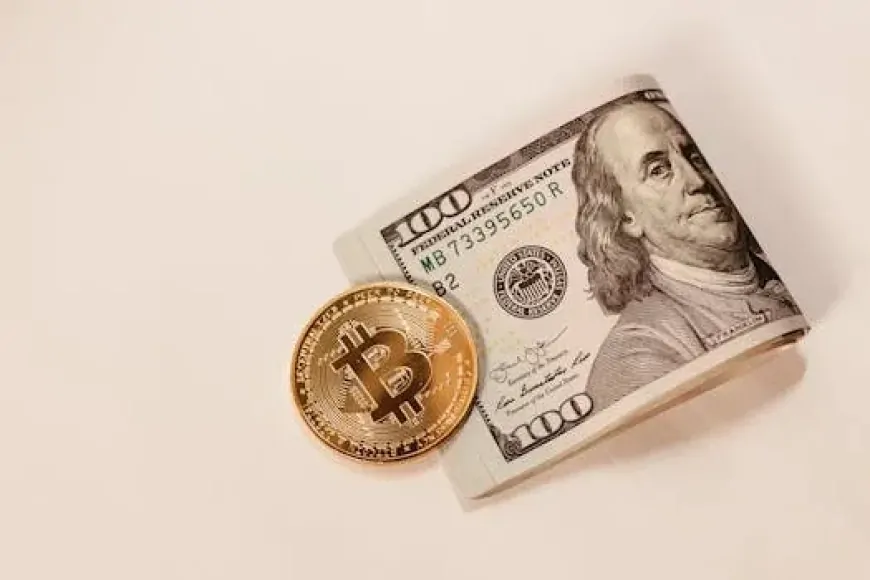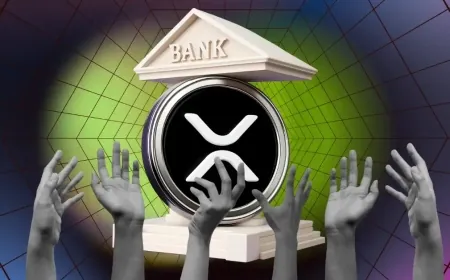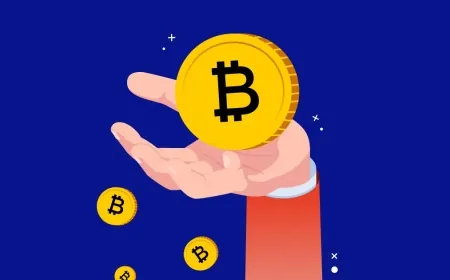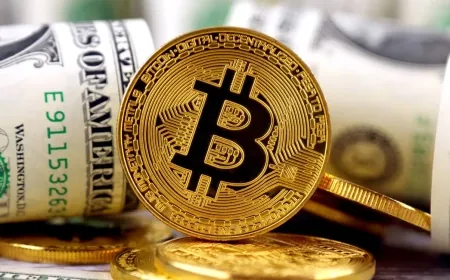As U.S. Tariffs Rise, Bitcoin Gains Attention as Protection Against Inflation
With rising tariffs and inflation risks, Bitcoin is drawing investor attention as a potential hedge against a weakening U.S. dollar in 2025.

When the government imposes tariffs, it directly increases the cost of imported goods. Companies that rely on global supply chains end up paying more to bring in products or raw materials. To protect profits, they pass those higher costs onto consumers.
This creates a ripple effect across the economy. Whether it’s electronics, cars, or groceries, consumers end up spending more for the same items. But the real issue is that incomes don’t rise at the same pace. With stagnant wages and rising prices, people are effectively losing purchasing power. The end result? A quiet but impactful form of inflation that eats into household budgets and savings.
Inflation Erodes Dollar Strength Over Time
Inflation is already a concern, and tariffs only add more fuel to the fire. When the cost of goods rises and wages lag behind, the real value of money declines. What a dollar could buy last year won’t go as far today—and certainly not tomorrow if current trends continue.
This is where assets like Bitcoin enter the conversation. Bitcoin’s limited supply means it can’t be inflated by printing more of it. Unlike fiat currencies, it’s not subject to central bank policies or political decisions. That makes it a unique tool for those seeking to preserve value over the long term.
Retaliatory Tariffs Raise Global Uncertainty
China’s response to U.S. tariff threats—retaliatory measures announced on April 4—shows how quickly trade tensions can escalate. These policy moves don’t just affect importers and exporters; they create ripple effects in global markets.
If trade flows slow down due to higher tariffs, global growth could take a hit. At the same time, demand for the U.S. dollar might decline if international confidence in U.S. economic policy weakens. A drop in demand for the dollar makes it more vulnerable to devaluation, further weakening purchasing power for U.S. consumers and investors.
Bitcoin Offers a Decentralized Alternative
Bitcoin operates on a decentralized network, independent of central banks, governments, and national currencies. That’s a big part of its appeal in times of financial instability. If confidence in fiat systems drops, Bitcoin’s neutrality becomes a strength.
Unlike the dollar, euro, or yen, Bitcoin isn’t influenced by political decisions or international diplomacy. It can be transferred globally, stored digitally, and held without relying on a central authority. As more people question the long-term strength of fiat currencies, Bitcoin becomes an attractive alternative for wealth storage.
The U.S. Budget Deficit Signals More Money Printing Ahead
With the U.S. budget deficit reaching an estimated $1.8 trillion in fiscal 2024, the government faces a growing gap between revenue and spending. While some policymakers support tariffs as a way to address this, the reality is they won't come close to closing the shortfall.
To cover the deficit, the government will likely continue issuing debt and expanding the money supply. This could lead to more inflation, further weakening the dollar. Bitcoin’s fixed supply—capped at 21 million coins—makes it resistant to such inflationary pressures. That scarcity is why some investors view it as "digital gold."
Bitcoin Is Not Risk-Free, But It's a Useful Hedge
While Bitcoin isn’t immune to volatility, its performance is driven by a different set of forces than traditional assets. Stocks, for example, are tied to earnings, supply chains, and trade policies—all of which are vulnerable in a tariff-driven environment.
Bitcoin, by contrast, tends to be influenced by macroeconomic sentiment, regulatory updates, and adoption trends. That gives it a separate risk profile, making it useful for portfolio diversification. For long-term investors, Bitcoin may act as a hedge—balancing out some of the risks associated with inflation, currency devaluation, and economic instability.
A Long-Term Strategy Over Short-Term Panic
Investing in Bitcoin doesn’t mean abandoning the financial system. But allocating a portion of a portfolio to it—especially in today’s climate—could help offset the risks posed by inflation and unpredictable policy shifts.
The key is to take a long-term view. Bitcoin may fluctuate in the short run, but it has consistently outperformed many traditional assets over longer periods. For those with patience and a high-risk tolerance, current market uncertainties may offer a good entry point.
The return of tariffs and widening budget deficits are creating fresh challenges for investors. With inflation picking up and confidence in the dollar under pressure, Bitcoin is gaining attention as more than just a speculative asset. It’s now being viewed as a financial buffer—one that could help preserve purchasing power in uncertain times.
Stay tuned to ishookfinance.com for more insights on how global policy moves are shaping the future of money, trade, and personal finance.
Also Read: US Hits Chinese Imports with 104% Tariff, China Plans Hit Back with Export Limits































































